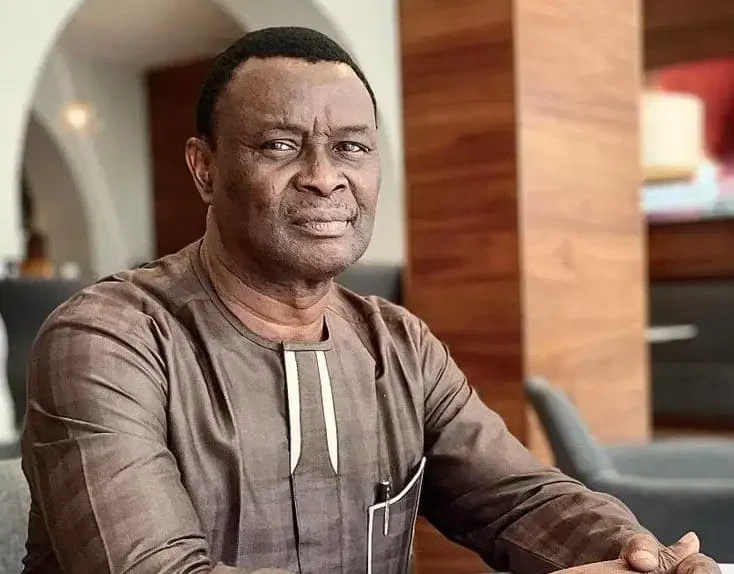• Unaddressed conflict between FG, states, insecurity leave investors in uncertainty
• Tinubu govt playing to gallery on illegal mining, stakeholders insist
• Experts want solid minerals to remain on exclusive list
Nigerian states, struggling to pay workers’ salaries and finance developmental programmes to reduce the rising level of poverty, are helplessly watching illegal miners control over $334.9 billion worth of solid minerals in their domains.
This comes as stakeholders rate low the much-touted attempt by the President Bola Tinubu administration to make solid minerals the new oil, a decision which led to the creation of two ministries to oversee solid minerals and steel development.
Barring further discovery, Nigeria’s total reserve of gemstones is estimated at 1.5 million tonnes. While the price of gemstones varies based on quality, the average synthetic gemstone global price is $207,333 per tonne, bringing the value of the gemstone deposit to approximately $310.9 million.
The government has stated that illegal mining in Plateau, Kaduna and Bauchi states has led to an estimated $3 billion worth of gemstone losses. The Federal Government also reports that Nigeria has over 40 million tonnes of talc deposits in Niger, Osun, Kogi, Ogun and Kaduna states. With the international price of talc at $300 per metric tonne, Nigeria could be making about $12 billion from the solid mineral.
However, data from the Raw Materials Research and Development Council (RMRDC) says that Nigeria has only one catalytic plant processing talc, with a capacity of 3,000 tonnes yearly.
Also, while iron ore is trading at around $106.96 per metric tonne at the international market, Nigeria has over three billion metric tonnes of iron ore deposits found in Kogi, Enugu and Niger states as well as the Federal Capital Territory. These deposits, given the current price, would translate to about $320.8 billion.
Similarly, Nigeria’s 21.37 tonnes or 754,000 ounces of estimated gold reserves are currently worth $1.8 billion at a spot price of $2,352.84 per ounce on the international market.
However, this has not added much-needed value needed to revive the economy. While Nigeria has yet to determine the exact volume of lithium in the country amidst a peak production of 50 metric tonnes, the Minister of Solid Minerals Development, Dele Alake, last month, estimated the worth of solid minerals in Nigeria at $750 billion. The government has engaged a German firm, GeoSca, for a study of the solid minerals in the country.
While revenue from the oil sector has plummeted and investment into fossil fuels up with a meagre $550 million final investment decision (FID) in the oil industry one year after Tinubu came in, the solid mineral sector was expected to create a viable alternative with foreign exchange and employment opportunities.
Coming at a time when states and the Federal Government are at loggerheads with states like Ebonyi, Benue, Niger, Kebbi, Osun, and Taraba suspending miners with licences from the Federal Government while others are passing laws and executive orders over mining rights, stakeholders told The Guardian that the projected gains of the mining sector may continue to remain in the pockets of illegal miners.
While Nigeria’s debt currently stands at N121.7 trillion, with states owing hundreds of billions to local and international debtors. Nigeria Extractive Industry Transparency Initiative (NEITI) had estimated that losses to illegal mining stand at about $3 billion yearly, while other stakeholders put it at $9 billion yearly.
The Principal Managing Consultant, Geocardinal Engineering Services Limited, Temitope Adeyemo, insisted that states are the problem of the sector, stressing that the states are already creating obnoxious laws apart from the 2007 Mineral and Mining Act.
According to him, while the relevant section of the Minerals Act and Regulation is clear about who has the authority to give consent for land that contains minerals, some states have allowed unauthorized activities, with certain traditional rulers usurping the landowners’ rights because of the resources available.
“The government strictly prohibits any form of mining without the consent of the landowners. There is no law permitting mining without landowner consent, yet it is evident that Taraba and some other states have been ignoring this requirement,” Adeyemo said.
While states are fighting to take charge of the solid minerals in their domains, Adeyemo noted that it is best to leave control over mining activities in the exclusive list.
To him, this aligns with global standards, as state governments cannot consistently develop a minefield, stressing further that necessary infrastructure demands that accompany mining activities are not met by the state governments. Adeyemo stated that the risk involved in mining is enormous for states to bear rather they could create equity with foreign investors.
“Every state thinks that by creating their executive order, they can improve revenue from mining. Instead, they should work within the law that guarantees a good environment for investors to thrive. States do not look for ways to acquire titles as sub-nationals as permitted by the act. Rather, they started creating an uneasy atmosphere around investors.
“This cannot generate any revenues, even if their office is seated on millions, as there are a lot of processes to follow,” he said.
He noted that the Federal Government is equally not sincere in fighting illegal mining because the approach being used is still the same as the old one, adding that there is a highly insufficient number of qualified, well-founded, and well-regulated personnel responsible for monitoring mining activities.
“It is obvious that the government is just playing in the gallery in fighting the menace of dreaded illegal mining. Technical personnel are far from being adequate, and the available ones are not well-equipped with adequate tools,” Adeyemo said.
Adeyemo believes that a functional mining field in Nigeria that could compete with oil would require the government to invest heavily in generating data across the geopolitical zones as they do when looking for productive hydrocarbon zones.
Renowned energy expert, Prof. Wunmi Iledare, noted that the measure for crude oil exploration must apply to solid minerals as they are both exclusive to the Federal Government.
Wunmi said the Federal Government could criminalise illegal mining and sanction any constituent state for illegality. Iledare said developing solid minerals is not what the Federal Government could do by itself, adding that investors must be invited with an attractive and competitive fiscal framework.
“It must not be based on mineral rent-seeking and sharing. I think I have heard that the Ministry of Solid Minerals is putting some fiscal policy in place. Such a policy framework must be forward-looking and implementation must disavow prebendalism.
“Nigeria has always excelled in policy formulation but conflicted in policy implementation. I am open to suggesting involving the state with incentives to participate in constitutional amendments. Perhaps decentralising mineral development might help. This is to a large extent different from the power sector decentralisation,” Iledare said.
Former President of the Chartered Institute of Bankers of Nigeria (CIBN) and professor of Economics at Babcock University, Prof. Segun Ajibola, said the menace of illegal mining is more worrisome because it is carried out in active connivance with traditional rulers and community leaders.
Ajibola said several bold actions, far-reaching policies and reforms need to be implemented in the mining sector, stressing that the process of granting mining permits needs to be reviewed.
He noted that there are alleged cases of licensed miners who concessioned such permits to inexperienced individuals, adding that such practice needs to stop.
“Those who collaborate with illegal miners in their domain need to face heavy sanctions. If a traditional ruler is deposed for this reason, it will send out the right signal.
“Mining remains in the exclusive list, solely a Federal Govt preserve. One would expect the Federal Government to devote more resources to geological surveys nationwide to have a credible dossier of solid mineral deposits nationwide. And then begin to police them while ensuring that only the Federal Govt duly licensed miners are allowed to operate with the proceeds accruable to the Federal Government as agreed,” he stated.
Ajibola asked the Federal Government to collaborate with the state and local governments nationwide on the need to quickly address the issues of illegal miners and their collaborators.
The Professor added that the terms and conditions under which miners are licensed to operate, the geological survey of the Nigerian landscape and the review of sanctions for infractions, irrespective of whose ox is gored.
Convener, Public Interest Advocacy Network (PIAN), Madaki Ameh, insisted that the states are lazy and completely innovative when investing in their abundant resources. He noted that federal allocations made the states uncreative on their way into prosperity lying all around them.
“This government has, sadly, not done anything new since taking over office over a year ago! The future of Nigeria’s economy still lies in Solid minerals, Agriculture and a well-run and efficient oil and gas industry. Whether those potentials will ever be realized remains a mirage, at least for the foreseeable future,” Madaki said.
Director of the Centre for Democracy and Development, Dauda Garuba stated that the new government may be ready to do something about the solid mineral sector, but that it remained doubtful if they are doing enough to expand the involvement of stakeholders.
Garuba said the states have also behaved in a manner that undermines the powers of the federal government, stressing that it’s never possible to develop it alone.
Garuba said: “Any close watcher of the sector would tell you that governors have indiscriminately and unilaterally stopped mining operations in their states. From Ebonyi, Benue, Niger, Kebbi, Osun and Taraba, governors have suspended/stopped mining in their domains without regard to the fact that the licenses of the mines/mining blocks were licensed by the federal government.”
By Kingsley Jeremiah, Editor, Energy & Power

 4 months ago
36
4 months ago
36















 English (US) ·
English (US) ·